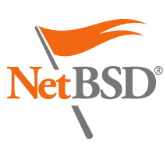
Fedora CoreOS
Fedora CoreOS serves as a streamlined, automatically-updating operating system designed specifically for secure and scalable containerized workloads. With a focus on minimalism and open-source principles, it supports various installation methods and runs across multiple platforms, ensuring flexibility for developers and organizations seeking robust container hosting solutions.
Top Fedora CoreOS Alternatives
AlmaLinux
AlmaLinux is a community-driven, open-source enterprise Linux distribution designed for long-term stability and production-grade performance.
UnixWare
UnixWare® 7.1.4 is a cutting-edge UNIX® operating system designed for critical business applications.
Unisys ClearPath Forward OS 2200
ClearPath Forward OS 2200 empowers organizations with unparalleled security and scalability for high-volume transaction processing.
Arista EOS
Arista EOS® serves as a robust, Linux-based operating system for cloud networking, designed to seamlessly scale in next-generation data centers.
NetBSD
NetBSD is a versatile and highly portable Unix-like open-source operating system, designed for optimal performance across a diverse array of platforms.
eLxr Pro
eLxr Pro is a commercial Linux solution tailored for cloud-to-edge deployments, expertly supporting mission-critical applications such as AI and machine learning.
Roku OS
With a focus on convenience, it features an intuitive home screen that highlights favorite channels...
Wind River Linux
It simplifies the development process by managing updates, defect tracking, and security patches, ensuring adherence...
FortiOS
With 99.98% security effectiveness, it automates defenses, ensuring timely protection across cloud environments and remote...
ChromeOS Flex
Devices boot in just six seconds, update automatically, and are easily managed via the Google...
openSUSE MicroOS
It provides a compact environment ideal for deploying containers, with options for offline installation and...
Rocket EOS 360
It automates processes, reduces costs, and ensures secure access to critical data...
CentOS Linux
It is derived from publicly available sources, with modifications to eliminate vendor branding...
Unraid
With an intuitive interface, it supports diverse applications, from media servers to game hosting...
Fedora Workstation
With streamlined upgrades and extensive hardware support, it features a curated selection of apps, advanced...
Top Fedora CoreOS Features
- Automatically-updating operating system
- Minimal design for efficiency
- Supports multiple installation methods
- Available on various platforms
- Stable
- testing
- and next streams
- Open-source and free software
- Customizable on first boot
- Ignition for initial setup
- Actively developed by community
- Inclusive contributor environment
- Weekly community meetings
- Dedicated issue tracker
- Feedback-driven development process
- Sponsored by Red Hat
- Optimized for container workloads
- Secure by default
- Scalable infrastructure support
- Continuous integration for updates
- Community-driven enhancements
- Real-time status updates














